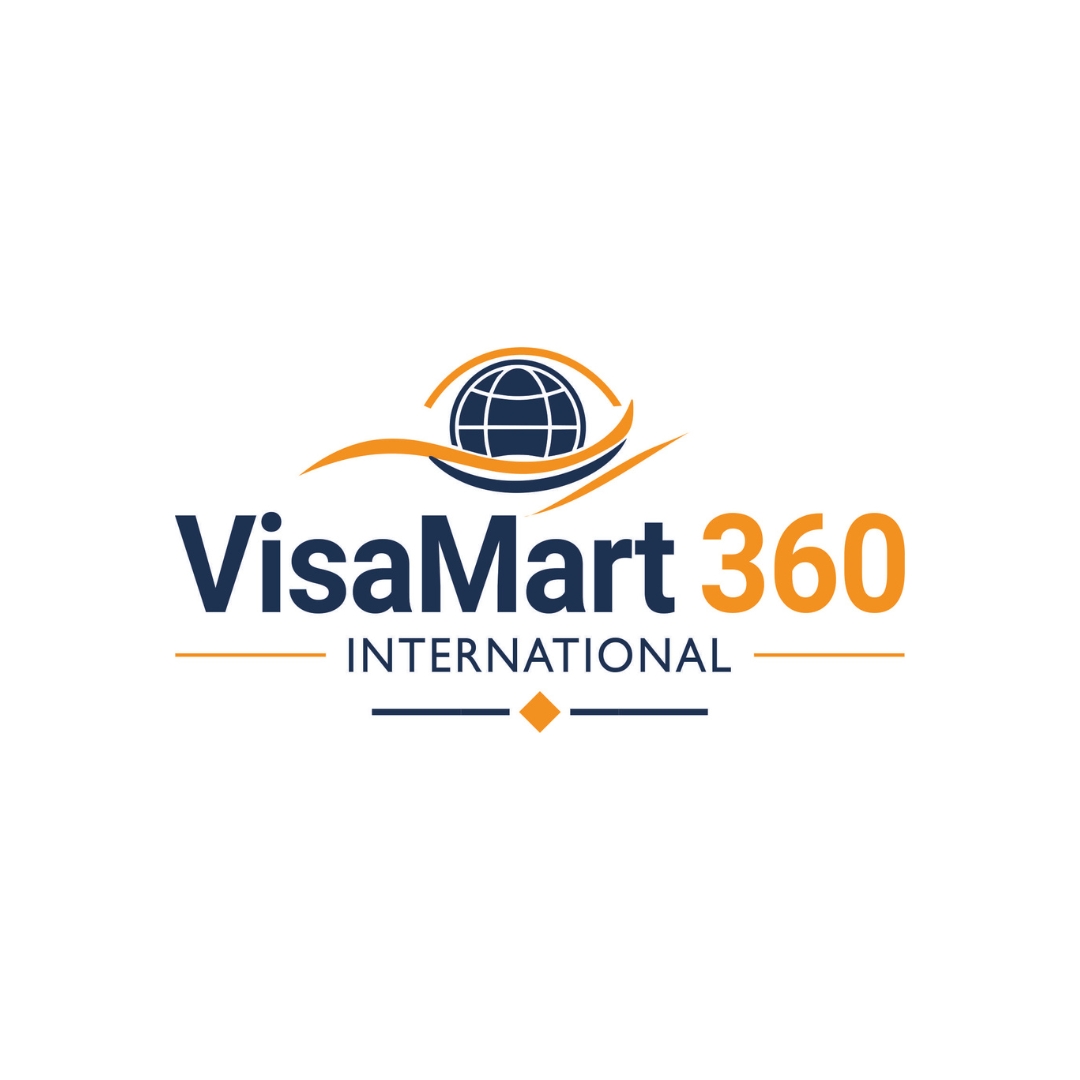Canada, renowned for its stunning landscapes, vibrant cities, and cultural diversity, is a top destination for travelers worldwide. However, most foreign nationals require a travel visa to enter Canada for tourism, business, or short-term visits. This blog provides an in-depth, plagiarism-free guide to understanding and obtaining a travel visa for Canada, covering types of visas, eligibility, application processes, costs, and essential tips as of 2025.
What is a Travel Visa for Canada?
A travel visa, officially known as a Temporary Resident Visa (TRV) or Visitor Visa, is a document issued by the Government of Canada that allows foreign nationals to enter the country for temporary purposes, such as tourism, visiting family, or attending business meetings. The visa is typically stamped in the traveler’s passport and specifies the duration and conditions of the stay.
Citizens of certain countries are exempt from requiring a TRV and can instead apply for an Electronic Travel Authorization (eTA) if traveling by air. The choice between a TRV and an eTA depends on the traveler’s nationality, purpose of visit, and mode of entry.
Types of Travel Visas for Canada
Canada offers several types of travel visas based on the purpose and duration of the visit:
- Visitor Visa (Single or Multiple Entry):
- Single Entry: Allows one entry into Canada for a specific period, typically up to six months.
- Multiple Entry: Permits multiple entries over a validity period (up to 10 years or until the passport expires), with each stay limited to six months.
- Purpose: Tourism, visiting family/friends, or short-term business activities.
- Electronic Travel Authorization (eTA):
- A simplified entry requirement for visa-exempt travelers from specific countries (e.g., Australia, Japan, UK) entering Canada by air.
- Valid for five years or until the passport expires, allowing multiple entries with stays up to six months.
- Super Visa:
- For parents and grandparents of Canadian citizens or permanent residents.
- Allows multiple entries with stays up to two years per visit, valid for up to 10 years.
- Transit Visa:
- For travelers passing through Canada en route to another destination, required if the layover exceeds 48 hours or if the traveler is from a visa-required country.
Each visa type has unique eligibility criteria and application processes, detailed below.
Eligibility Criteria for a Travel Visa
To qualify for a Canadian travel visa (TRV or eTA), applicants must meet the following requirements:
- Valid Passport: The passport must be valid for the duration of the stay and have at least one blank page for the visa stamp.
- Purpose of Visit: Applicants must demonstrate a clear purpose, such as tourism, business, or family visits, with supporting documents (e.g., invitation letters, itinerary).
- Ties to Home Country: Evidence of strong ties (e.g., employment, property, family) to ensure the applicant will return after their visit.
- Financial Sufficiency: Proof of funds to cover travel expenses, such as bank statements or pay stubs.
- Good Health: Applicants may need to undergo a medical exam if staying longer than six months or if visiting from certain countries.
- No Criminal Record: A police clearance certificate may be required to confirm the applicant has no inadmissible offenses.
- No Security Risk: Applicants must not pose a security threat to Canada.
For an eTA, the requirements are simpler, focusing on a valid passport from an eligible country and no inadmissibility issues.
Step-by-Step Application Process
The application process for a Canadian travel visa depends on whether you need a TRV or an eTA. Below are the steps for each.
Visitor Visa (TRV) Application
- Determine Eligibility:
- Check if your country requires a TRV using the official Immigration, Refugees and Citizenship Canada (IRCC) website.
- Confirm whether you need a single or multiple-entry visa.
- Gather Documents:
- Valid passport (scanned copy of the bio page).
- Recent passport-sized photos meeting IRCC specifications.
- Proof of funds (e.g., bank statements for the last 4–6 months).
- Travel itinerary (e.g., flight bookings, hotel reservations).
- Invitation letter (if visiting family or friends).
- Employment letter or business documents (if applicable).
- Additional documents based on your situation (e.g., marriage certificate, proof of ties to home country).
- Complete the Application:
- Apply online via the IRCC website or on paper at a Visa Application Centre (VAC).
- Fill out forms, such as IMM 5257 (Application for Visitor Visa) and, if required, IMM 5645 (Family Information).
- Pay the application fee (approximately CAD 100 per person, plus CAD 85 for biometrics if applicable).
- Provide Biometrics:
- Most applicants aged 14–79 must provide fingerprints and a photo at a VAC.
- Book an appointment at the nearest VAC after submitting the application.
- Submit the Application:
- Upload documents and submit the application online, or deliver paper applications to the VAC.
- Track the application status via the IRCC online portal.
- Attend an Interview (if required):
- Some applicants may be asked to attend an interview at a Canadian embassy or consulate.
- Receive Decision:
- Processing times vary (typically 2–8 weeks, depending on the country of application).
- If approved, the visa will be stamped in your passport or sent as a counterfoil.
eTA Application
- Confirm Eligibility:
- Ensure you are from an eTA-eligible country and traveling by air.
- Apply Online:
- Visit the official IRCC eTA application portal.
- Provide passport details, personal information, and answers to background questions.
- Pay the fee (CAD 7).
- Receive Confirmation:
- Most eTA applications are approved within minutes via email.
- The eTA is electronically linked to your passport and valid for five years or until the passport expires.
Costs Associated with a Travel Visa
- Visitor Visa (TRV):
- Application fee: CAD 100 per person.
- Biometrics fee: CAD 85 per person (or CAD 170 for families applying together).
- Additional costs: Medical exams (if required, CAD 100–300), document translation, or courier fees.
- eTA:
- Application fee: CAD 7.
- Super Visa:
- Same as TRV fees, plus proof of private medical insurance (costs vary, typically CAD 1,000–2,000 annually).
- Transit Visa:
- Free for eligible applicants, but biometrics fees may apply.
Always check the IRCC website for the latest fee structure, as costs may change.
Processing Times and Validity
- Visitor Visa: Processing times range from 2–8 weeks, depending on the applicant’s country, application volume, and completeness of documents. The visa’s validity is determined by IRCC, with multiple-entry visas often valid for up to 10 years.
- eTA: Typically processed within minutes, valid for five years or until the passport expires.
- Super Visa: Processing may take longer (4–12 weeks) due to additional requirements, with validity up to 10 years.
- Transit Visa: Processing aligns with TRV timelines.
Applicants can check estimated processing times on the IRCC website by selecting their country of residence.
Key Considerations and Tips
- Apply Early: Submit your application at least 2–3 months before your planned travel date to account for delays.
- Accurate Documentation: Double-check all documents for accuracy to avoid refusals. Use IRCC checklists to ensure completeness.
- Honesty is Critical: Provide truthful information, as misrepresentation can lead to visa refusal or a ban from entering Canada.
- Biometrics Appointment: Schedule biometrics promptly after receiving the request to avoid delays.
- Proof of Ties: Strong evidence of ties to your home country (e.g., job contract, property deeds) increases approval chances.
- Travel Insurance: While not mandatory for a TRV, purchasing travel insurance is recommended for medical emergencies.
- Check Visa-Exempt Status: If eligible for an eTA, confirm requirements before booking flights.
- Consult Professionals: For complex cases, consider hiring an immigration consultant registered with the College of Immigration and Citizenship Consultants (CICC).
Common Reasons for Visa Refusal
- Insufficient Funds: Lack of proof to cover travel expenses.
- Weak Ties to Home Country: Inadequate evidence that the applicant will return after their visit.
- Incomplete Application: Missing documents or incorrect forms.
- Criminal or Medical Inadmissibility: Failing to meet health or security requirements.
- Suspicion of Overstaying: Concerns that the applicant may not leave Canada after the authorized period.
If refused, applicants receive a letter explaining the reasons and can reapply with corrected or additional information.
Recent Updates (as of 2025)
Canada’s immigration policies evolve to balance traveler needs with border security. Recent changes include:
- Digital Enhancements: IRCC has expanded online application portals, reducing paper-based submissions.
- Biometrics Expansion: More countries now require biometrics to enhance security.
- Super Visa Flexibility: Streamlined requirements for medical insurance providers to make the Super Visa more accessible.
- eTA Integration: Improved integration with airline systems to verify eTA status before boarding.
Always verify updates through official IRCC channels or Canadian embassies.
Extending Your Stay in Canada
If you wish to stay longer than the authorized period (typically six months for visitors), you must apply for an extension at least 30 days before your status expires. The process involves:
- Submitting an online application via IRCC.
- Paying a fee (CAD 100).
- Providing reasons for the extension and supporting documents.
Failure to extend or overstaying can result in deportation or future entry bans.
Conclusion
Obtaining a travel visa for Canada requires careful planning, accurate documentation, and adherence to IRCC guidelines. Whether applying for a Visitor Visa, eTA, Super Visa, or Transit Visa, understanding the eligibility criteria and application process is crucial for a smooth experience. Canada’s welcoming environment and diverse attractions make it a worthwhile destination, but thorough preparation ensures a hassle-free entry.
For the latest information, visit the official IRCC website or contact a Canadian embassy or VAC. With the right approach, you can secure your travel visa and embark on an unforgettable journey to Canada.


